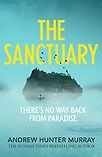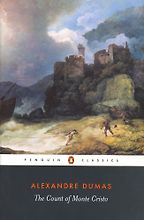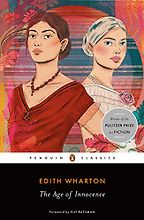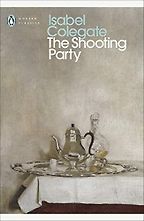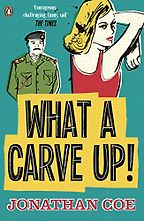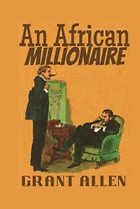It seems like a lot of popular culture revolves around the anxieties of rich and famous people. Why do we like reading books about super-rich people so much?
Well, most books don’t feature universally good results for the protagonist. So perhaps we like seeing people wealthier than ourselves get a bit of a kicking. Perhaps we want to see what’s on the other side of the velvet rope. In television, I’ve been frantically catching up on Succession recently, and in that, at least, there’s a certain amount of wish fulfillment in finding out that the people who have so much more than us are not only no happier but are also, in many cases, less happy precisely because of the money. I think that applies to literature as well; there’s a powerful warning system attached to books about the very wealthy.
The other thing to say is that most novelists are not billionaires, almost without exception. What that means is that you’re normally seeing a world from outside. That’s part of the job of the author, in any case, to see a world from the outside. And so you normally get, perhaps, a slightly skewed perspective on that world. Although there are authors like Edith Wharton, who was part of the ‘gilded age’ she was describing. Even in such cases, their strength is to see the world with a detached eye. So in some senses, they are all safari books about the super-rich.
I suppose you’ve been thinking about this subject in depth while writing your most recent novel, The Sanctuary.
The Sanctuary is a book about the near future and who gets to influence it—whether having substantial wealth will allow you to influence not only your immediate surroundings but also the future of your entire species. The plutocrat I write about in The Sanctuary, John Pemberley, has a strong sense of mission. Wealth is a way for him to do exactly what he wants. It’s a strange kind of freedom, when you have unlimited resources.
“In some sense, these are all safari books about the super-rich”
There was a study recently, in which people were asked how much money they would like to have in an ideal world. If they could just win a certain sum, in increments from $1000 to $10,000, to $100,000, all the way up to $100 billion. More people picked $10 million than any other amount because that’s an amount of money that would change your life enormously, but would not completely deform your existence.
When you have a certain level of material wealth, you have an unimaginably large range of potential activities that you can do. Anything you like, really. Which is paralysing for most people, I think. Whereas Pemberley, my character, has settled on a course.
Right, he’s building an island utopia, in a dystopian world.
Most of us are acting based on everything we’ve done before. All the choices that have led us to this point have given us the amount of freedom we have, whether that’s large or small. But when you have a character who is so wealthy they can do whatever they like—and they’ve decided on a very clear course—that’s also interesting and slightly alien, slightly disconcerting.
Let’s look at your first book recommendation. This is The Count of Monte Cristo by Alexandre Dumas, the classic adventure novel first published in 1844. Why should we read it now?
It’s a tale as old as time: boy meets girl, boy is wrongly imprisoned for many years, boy escapes, discovers enormous fortune on mysterious Mediterranean island, boy exacts revenge on the people who locked him up in the first place. It was a lockdown read for me: it’s 1200 closely-typed pages, and surprisingly thrilling given how long it is. Dumas really manages to sustain great excitement for lots of the book.
It’s interesting when you get these huge 19th-century authors who are writing by the pound, by the ten million words. It’s easy to be daunted by it—I think I was daunted for a long time before I read it. But then I started… At the start, Edmond Dantès is such a sweet pleasant young man; you feel for him so much when he’s unfairly locked away. It’s a complete set-up, he’s done nothing wrong. All the scenes in prison are very exciting, then he discovers this huge fortune, becomes the Count of Monte Cristo, and is rocketed into a completely different sphere of human existence. He becomes frightening.
The interesting thing in the second half of the book is seeing the net being skilfully drawn tighter and tighter around the people who locked him up, who made him suffer for so many years. Dumas really skilfully creates suspense over just how far the Count is willing to go in his vengeance mission. You have the sense that everyone is being punished towards the end—but not you, the reader, because it’s very exciting.
A bit of a binge read, this.
Yes, it’s really fun. Also a bit fantastical. When Dantès arrives on the mysterious island that contains the secret hole packed full of treasure, it’s insanely over-described. When he gets in there, the walls are practically coated in gold, there are chests full of treasure everywhere. It’s the fantasy of winning the EuroMillions when you haven’t even bought a ticket. It’s insane how ludicrously wealthy he suddenly becomes.
The exciting thing is how he transforms huge casks of jewels and diamonds into a stable future for himself, given that he’s a nobody. He’s poor, he’s escaped from prison. If anyone finds out about this, then he’s dead. They’ll just kill him and take the money. So it’s a very exciting transformation process: he goes into the cocoon as Edmond Dantès and comes out a count.
Yes, I love the element of wish fulfillment. My partner and I have an ongoing debate over what we would do if we found a suitcase full of banknotes on the beach. We plot it all out. Even in our dreams, it’s never plain sailing, you know—there’s always someone after us. It’s complicated
Exactly that. And Dantès is such a sweet boy, and the Count is such a cruel and distant man. It’s almost impossible to believe it’s the same person. But that sense of the complexity of wealth is in almost all novels about wealth.
Yes, your next book about the super-rich is another 19th-century novel, An African Millionaire by Grant Allen. I have to admit it’s not one I’d come across before.
This is a really fun novel, almost a set of short stories—strung together like diamonds in a necklace. It’s about a British millionaire called Charles Vandrift, who made his money in South African diamond mines, and is now a financier. He’s very wealthy but has clearly earned this wealth through corrupt and colonialist practices. The short stories are all about Vandrift being repeatedly swindled, hoodwinked, cheated by the same antagonist, a shapeshifting con artist called Colonel Clay. In every single story, Clay wins and Vandrift loses. To Vandrift, the amounts are small, but to anyone reading the book these are life-changing sums of money that Clay is shearing off his targeted sheep.
“In Wharton’s books, wealth functions as a heavy cloth, a prophylactic stopping people from understanding each other’s true feelings”
It makes you realise that these questions were being asked back in 1897. Vandrift goes a little mad with confusion over this punishment being visited on him by a seemingly omnipotent and omniscient enemy, but he has a twinge of moral improvement as the stories go on. They’re mostly just fun, though.
There’s another moral point being drawn quite carefully here—it shows a lot of people being compromised. The narrator is the millionaire’s secretary; at one point early on in the book, the secretary tries to chisel some money out of his boss without the boss knowing by claiming a little side commission on a piece of work he’s doing. It turns out that the person he’s dealing with is the mysterious Colonel Clay who now has compromising material on him… so it’s about the power of money to corrupt, in that sense.
At one point, Clay calls himself a ‘practical socialist,’ because he is engaged in the direct redistribution of money from Vandrift to himself.
A colonial Robin Hood?
Exactly like that. Clay’s great gift is disguise. In every chapter, he becomes a new character who meets Vandrift and talks to him. Occasionally Vandrift will spot someone and say, ‘I know you, you’re the Colonel in disguise!’ and attempt to rip off some poor bearded gentleman’s whiskers. It’s really very funny and charming.
Your next recommended novel about wealth and the lives or rich people is Edith Wharton’s classic of gilded age New York, The Age of Innocence.
I think of Wharton as Jane Austen a century on. She’s not afraid to punch a bit harder.
Her novels are not romances in the sense that Austen’s are, although both are set in a certain wealthy layer of society, and where the question is whether people are going to form happy relationships or not. They’re not comic romances; Wharton’s novels are more tragic than that. A lot of her books are set in 1870s New York, when some enormous fortunes have been made, where New York is still under construction, and the balance of power is shifting between old money and new. That’s a fabulous motor for fiction: a society in flux. And the great thing about Wharton is that she was part of this world, she grew up in it. She’s writing anthropological work about her own people.
The Age of Innocence is about a young man called Newland Archer. He’s engaged to someone that I think it is fair to call ‘a perfectly nice girl.’ She’s called May, she’s lovely, and she’s absolutely a paid-up member of the society they are both in. At the start of the novel, May’s cousin Countess Ellen Olenska returns from Europe—which, in Wharton’s novels, is always a site of potential danger and excitement. Newland encounters her for the first time at the opera. Then he hears she’s potentially engaged in a divorce. So there’s an element of scandal about her. He befriends her because of his fiancé’s connection to her, and then he falls in love with her.
She’s just as wealthy as any of the members of this society, but she’s not part of it. She doesn’t accept its strictures. Plus he falls totally in love with her while already being engaged to her cousin. So it’s a magnificent romantic tragedy. Wharton isn’t afraid to give her characters unhappy or complicated endings. In The Age of Innocence and in lots of Wharton’s books, wealth functions as a heavy cloth, a prophylactic stopping people from seeing each other’s hearts and understanding each other’s true feelings.
It’s an amazing novel. All of Wharton’s books are brilliant. Well, apart from her ghost stories, which aren’t my favourite. They just aren’t scary.
I liked your description of her writing as ‘anthropological’. I think that’s absolutely true. What I find interesting about her novels is how closely she observes the hierarchy even within the American elite. The European aristocracy holds a certain dangerous fascination for the US upper crust; something that’s often reversed in English novels where newly moneyed industrialists have a flashy glamour.
Yes, in a sense everyone is worried about what everyone else has, whether that’s more money or more of any other unexpected asset. People are constantly examining each other. There’s a whole raft of novels, as you say, of old British families marrying into American money, because there aren’t enough funds to keep the big house going. There were a lot of marriages of convenience in the 19th century and the early 20th century, where you might effectively trade a lump of US currency for a title and a country house. But that also leads to complication, because think of a young woman from gilded age New York coming to live in a leaky house in rural Borsetshire…
God, imagine.
Francis Hodgson Burnett wrote a few books about people trading spouses, steamships carrying young women to be married off on one side of the Atlantic or another.
I think there’s also a sense that one never feels like one has ‘arrived’; no matter how rich they get, there’s always one circle these characters don’t qualify for.
Wharton is very good on that. Her book The House of Mirth is incredible.
My main memory of that book is that the title is entirely misleading.
Ah, it’s incredible. It’s all about Lily Bart trying to find some secure berth for life and marriage, and not quite ever being able to compromise her own brilliant personality to do that. There’s another one called The Custom of the Country, in which Undine Spragg—what a name—a young arriviste from the Midwest, the middle of nowhere, really, who arrives in New York and ruins her parents’ savings to buy her way into high society, and slowly climbs the brutal cliff face towards acceptance in society. But, as you say, she never feels she’s arrived.
Even as the novel ends, she’s achieved her greatest financial triumph so far. Then in the very final pages, she spots a tiny bauble someone else has that she doesn’t, and you can already see her starting to plot. It’s an amazing portrayal of the human inability to accept what we have.
Let’s talk about your next book recommendation, another novel about the very wealthy: The Shooting Party by Isabel Colegate.
The Shooting Party is a novel set in Edwardian England, and it’s about a small group of people who have gathered on the estate of Sir Randolph. From the very first page, you know that someone dies during the shooting weekend, but you don’t know who it is. Colegate is magnificent at creating atmosphere and drawing character. It’s so realistically done that I assumed it was written in the first years of the 20th century, when in fact it was published in 1980.
In a relatively short book, she creates well over a dozen remarkably detailed personalities, all of whom you believe in and all of whom are fascinating. Colegate is so good on character, and on Edwardian society. Because it was a very weird time to be wealthy—there were interesting rules about marriage, and adultery in particular, which was tacitly accepted. Marital relationships seem to have been quite strange in terms of men being mollycoddled and really mothered by their wives; the locus of romantic action was really in affairs. Marriage was seen as important, nice to have, but fundamentally unsexy.
Five Books interviews are expensive to produce. If you're enjoying this interview, please support us by donating a small amount.
So Colegate fills her books with interesting touches about people’s marriages. For example, at one point someone observes that the host has given a pair of lovers bedrooms nice and close to each other, so that they can discreetly slip along the corridor in the middle of the night. It’s brilliantly and accurately rendered. You want to know what happens to the marriages, you want to know what happens with the shooting party, and this whole world is about to end.
I think that brings us to the final novel about rich people that you’d like to recommend: What a Carve Up by Jonathan Coe, set in the outrageous 1980s.
Yes, this is a book about Thatcherite wealth. I think it’s one of the most brilliant relatively recent novels about money and wealth. None of the book’s characters are quite super-rich, but they are clearly well on their way there.
It’s about a family called the Winshaws who are described as—and I’m quoting here—as “the meanest, greediest, cruelest bunch of back-stabbing, penny-pinching bastards who ever crawled across the face of the earth.” It’s incredible.
So, it’s about a young novelist who gets a commission to write a history of the Winshaw family. The family has its hooks into almost every aspect of British life in the 1980s: there’s an art dealer, a very cruel factory farmer, a politician, an arms dealer, a poisonous newspaper columnist. It’s very complicated, because the timelines are fractured, and there are coincidences everywhere. It’s written in quite a postmodern way. But its central depiction of a family on the make, all connected to and helping each other up the greasy pole is very relevant to life in Britain today. They are very Johnsonian, the Winshaws.
Given our discussion, would you like to be super-rich yourself—if you had the chance?
No. But it’s easy to say that. If someone offered me a chance for a billion quid tomorrow, I’m sure I’d grab it with both greedy mitts. But I don’t think it would make me happier, or aid the development of my life. I don’t think it would help me do the work I love doing, and to improve at that work, which are two of the big elements of finding happiness and satisfaction. It would buy me freedom. That’s the great thing. But the complications that wealth brings seem a pretty big trade-off.
Maybe just a cool ten million?
I think so.
Interview by Cal Flyn, Deputy Editor
July 14, 2023
Five Books aims to keep its book recommendations and interviews up to date. If you are the interviewee and would like to update your choice of books (or even just what you say about them) please email us at [email protected]

